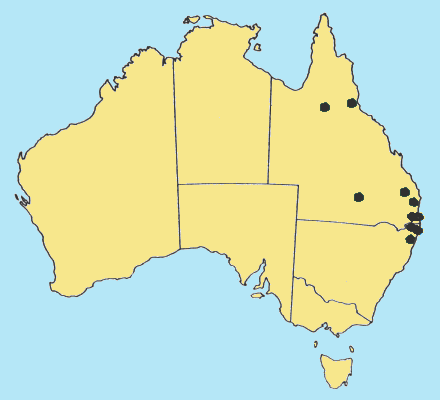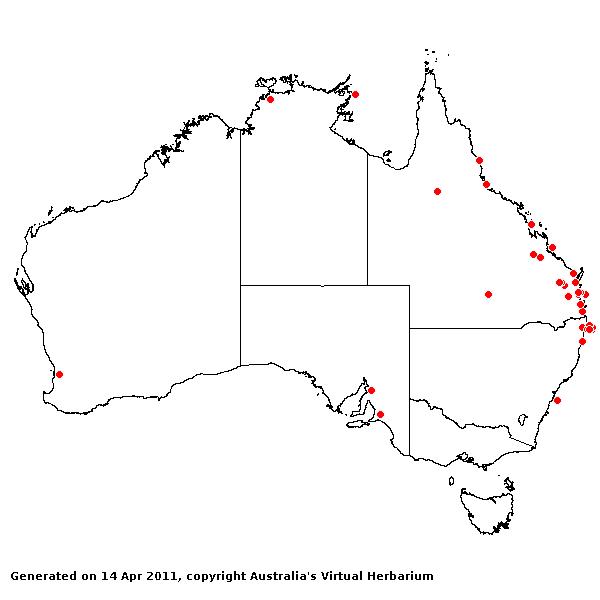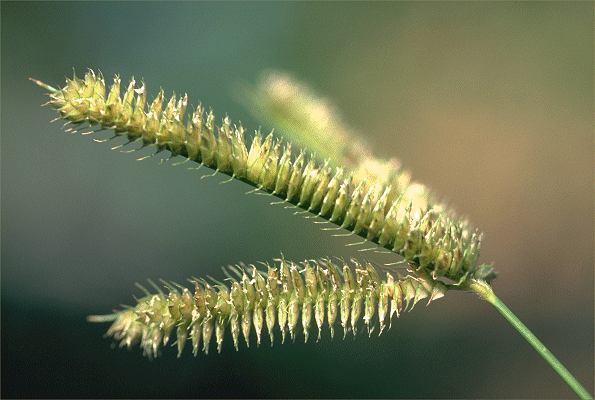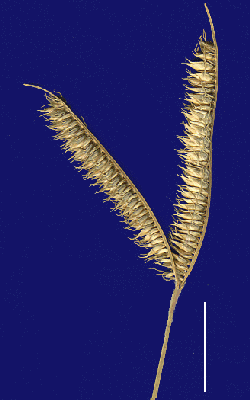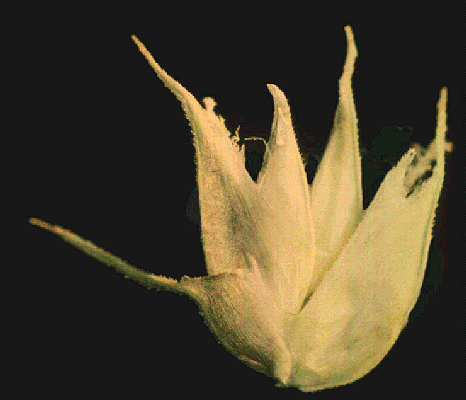Dactyloctenium australe*
Steud. Syn. Pl. Glum. 1:212
(1854).
Classification. (GPWG 2001) : Subfamily
Chloridoideae. Cynodonteae.
Type of Basionym or
Protologue Information: T: South
Africa, Drege; holo: P.
Key references
(books and floras): [2002] D.Sharp & B.K.Simon, AusGrass, Grasses of
Australia,
[2006] J.Jessop, G.R.M.Dashorst, F.M.James, Grasses of South Australia
(351), [2008] S.W.L.Jacobs, R.D.B.Walley & D.J.B.Wheeler, Grasses of New
South Wales (195).
Illustrations:
[2005] K.Mallet (ed.), Flora of Australia 44B: Poaceae 3
(Fig. 55H), [2006] J.Jessop, G.R.M.Dashorst, F.M.James, Grasses of South
Australia (351, Fig. 283), [2008]
S.W.L.Jacobs, R.D.B.Whalley & D.J.B.Wheeler, Grasses of New South Wales,
4th edn (195).
Habit. Perennial. Rhizomes absent. Stolons present. Culms erect or
geniculately ascending or decumbent, 30–80 cm tall. Ligule a fringed membrane,
a ciliolate membrane or a ciliate membrane, 5 mm long. Leaf-blades 5–27 cm
long, 2.5–4.5 mm wide. Leaf-blade surface indumented.
Inflorescence.
Inflorescence digitate, with spicate branches. Rhachis deciduous from axis.
Spikelets.
Spikelets sessile. Fertile spikelets many flowered, with at least 2 fertile
florets (2–6), comprising 2–6 fertile floret(s), with diminished florets at the
apex, elliptic or oblong or ovate, laterally compressed, 4–5.5 mm long.
Glumes. Glumes
dissimilar. Lower glume oblong, keeled, 1-keeled, 1 -nerved. Lower glume apex
mucronate (0.5–0.75mm). Upper glume obovate, 1.7–1.9 mm long, membranous,
keeled, 1-keeled, 1 -nerved. Upper glume apex awned.
Florets.
Fertile lemma 2.5–4 mm long, keeled, 3 -nerved. Lemma apex mucronate
(0.5–0.7mm), 1 -awned. Palea 2 -nerved. Anthers 3.
Continental
Distribution: Africa and Australasia.
Australian
Distribution: Western Australia, Queensland, New
South Wales.
Western Australia: Carnarvon.
Drummond. Queensland: Burnett, Cook,
Leichhardt, Moreton, Port Curtis, Wide
Bay, Warrego. New South Wales: North
Coast, Central Coast.
Notes.
Introduced in Australia
and elsewhere as a lawn grass and sand-binder, particularly for shady areas.
Has been reported suitable for, and tolerant of, grazing.
Sometimes confused with the annual weed, D.
aegyptium because of the appearance of pseudo-stolons in the latter, but
may be distinguished by the much longer anther, and usually longer rachis
prolongation.
Introduced;
naturalised on the N coast of N.S.W. and in SE Qld, and from Perth
and Cararvon, W.A.; native to coastal and near-coastal areas of southern and
eastern Africa.
